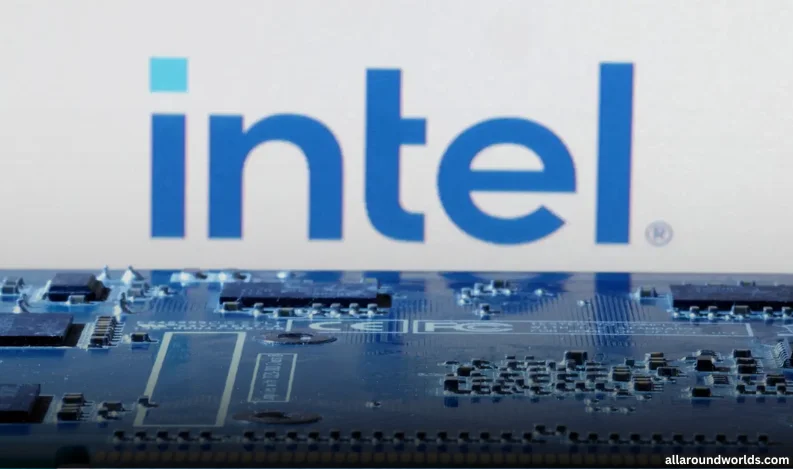
Intel CEO Lip-Bu Tan’s Extensive China Investments Raise Strategic, Ethical Questions
As geopolitical tensions between Washington and Beijing intensify, Intel CEO Lip-Bu Tan has come under scrutiny for his decades-long financial entanglements in China through venture capital firm Walden International and two Hong Kong-based holding entities — Sakarya Limited and Seine Limited.
Investigations conducted by Reuters and confirmed through multiple Chinese corporate databases reveal a complex network of investments that connect Tan to hundreds of Chinese firms, including several with ties to China’s military-industrial and surveillance infrastructure. Some of these firms have been blacklisted or sanctioned by the U.S. government over national security and human rights concerns.
Ties to SMIC and China’s Military-Linked Tech Sector
Tan, a respected figure in Silicon Valley, founded Walden International in 1987 and became a seed investor in Semiconductor Manufacturing International Corporation (SMIC), China’s largest chip foundry, in 2001. He served on its board until 2018. However, in 2020, the U.S. government placed SMIC under sanctions, citing its links to the Chinese military. Tan exited his position in 2021, as confirmed by the U.S. House Select Committee on the Chinese Communist Party.
Despite his departure from SMIC, Walden International continues to maintain financial exposure in at least 20 Chinese funds and companies, several in partnership with state-backed tech hubs in Hangzhou, Hefei, and Wuxi.
Investments Tied to Military and Surveillance Concerns
According to Chinese filings, Walden has partnered on six separate investment projects with China Electronics Corporation (CEC) — a key supplier to the People’s Liberation Army (PLA). CEC was sanctioned in 2020 under an executive order signed by then-President Trump, prohibiting U.S. citizens and companies from transacting with entities deemed “Chinese military companies.”
One of the joint ventures between Walden and CEC includes QST Group, a sensor technology firm whose products have allegedly been recovered in Russian drones used in Ukraine, based on data released by the Ukrainian government. Another controversial holding is Intellifusion, a surveillance technology firm blacklisted by the U.S. Department of Commerce for its alleged involvement in human rights abuses in Xinjiang. Walden retains a 2% stake in the firm.
Walden also holds more than 5% of Wuxi Xinxiang Information Technology Co. Ltd, a supplier to Yangtze Memory Technologies Co. (YMTC)—a company that landed on the U.S. Commerce Department’s trade blacklist in 2022 and was later identified by the Pentagon as a military-linked entity operating in the U.S.
Sakarya and Seine: A Web of Holdings in China
Through Sakarya Limited, a Hong Kong-based holding company where Tan is the sole registered owner, Tan holds controlling interest in 38 Chinese firms. This includes Huaxin Yuanchuang (Qingdao) Investment Management Co., Ltd., Walden's primary mainland China vehicle. These connections link Tan to over 500 Chinese firms, spanning semiconductors, surveillance, AI, and logistics technologies.
A second entity, Seine Limited, is controlled by Walden Technology Ventures III LP. Seine holds stakes in at least 68 Chinese companies, including Dapu Technologies, a component maker identified by the U.S. House committee as a PLA contractor, and HAI Robotics, a firm previously reported to have bid for military contracts and collaborated with Chinese surveillance entities.
While HAI Robotics confirmed Seine’s 8.3% stake, the company denied any military involvement, stating that it operates solely in civilian warehousing and complies with laws across China, the U.S., and Europe.
Strategic Risks and Political Sensitivities
Tan’s legacy as a visionary investor is now intersecting with questions about national security, ethical responsibility, and the role of venture capital in enabling foreign state-sponsored technology development. His past and present affiliations raise broader concerns about technology transfer risks, especially as Washington intensifies scrutiny on cross-border investments into sectors deemed sensitive.
The U.S. Department of Commerce and the Pentagon have not directly commented on Tan’s investment entities, but the expanding blacklists signal a hardening stance against dual-use technologies—those that can be deployed for both civilian and military applications.
In response to requests for comment, Walden International declined, while Sakarya Limited, Seine Limited, and several Chinese firms involved did not respond.
What Lies Ahead?
Lip-Bu Tan’s long-term commitment to China’s innovation ecosystem reflects a time when global technology investments were less politically charged. However, in the current geopolitical climate, investors with deep China exposure are increasingly under the microscope.
With the U.S. stepping up efforts to decouple sensitive technologies from Chinese firms, industry insiders suggest that Tan’s affiliations could invite further regulatory and public scrutiny, particularly as Intel continues to play a key role in global chip supply chains and policy discussions.
Whether these investment connections will impact Intel's strategic direction or regulatory relationships remains to be seen. What is clear is that Tan’s financial footprint in China is deep, far-reaching, and now, impossible to ignore.



Recent Comments: